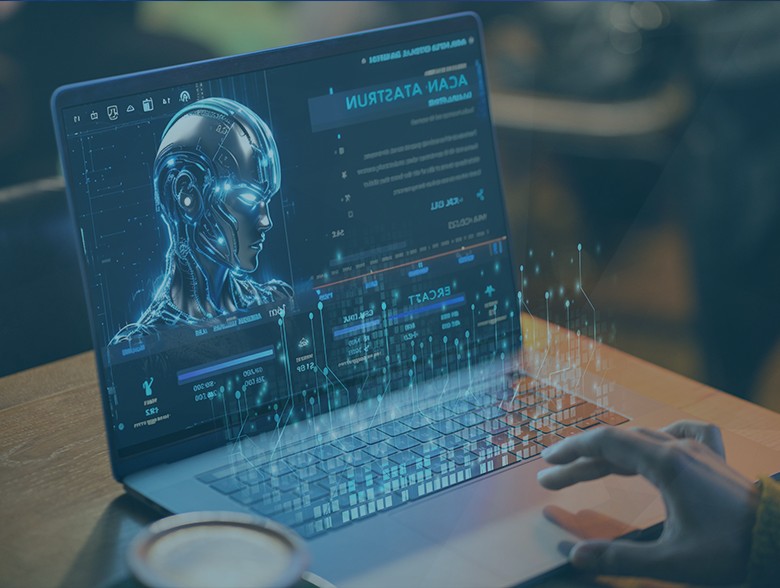Identifying the most common AI-enhanced cyber-attack methods and strategies to mitigate them
By Philipp Pointner, Chief of Digital Identity at Jumio
While AI-driven automation brings benefits, it also gives hackers advanced tools to develop more sophisticated methods for a wide range of malicious activities like fraud, disinformation and cyberattacks. To combat these threats, enterprises must implement robust risk management strategies.
In this article, we’ll walk through today’s AI-enhanced cyberattack methods, and steps for security leaders to prevent these threats. These steps include leveraging advanced strategies, such as comprehensive identity verification, biometric authentication and liveness detection, to ensure the safety and security of their enterprise.
Advanced AI-Powered Attack Methods
With generative AI frameworks at their fingertips, hackers are crafting increasingly convincing scams that bypass traditional cybersecurity measures. This is exemplified in the evolution of phishing scams. As fake emails were once underdeveloped and easy to detect, generative AI has enabled fraudsters to craft much more sophisticated, professional-looking messages that are harder to identify as fraud.
Some of the other prominent attack methods raising concern among businesses include:
- FraudGPT: Hackers are exploiting a new product being sold on the dark web called FraudGPT, which was built solely for the purpose of enhancing fraud and scamming techniques. FraudGPT is an LLM without the same filters and limitations as ChatGPT, enabling users to generate information such as the curation of malicious code, locating vulnerabilities, identifying vulnerable targets and more – making it a powerful weapon for cybercriminals, and a danger to organizations and their users.
- Password guessing: The deployment of AI-supported password guessing — also known as AI-assisted password cracking — is a tactic that uses AI techniques to guess or identify passwords. Similar to phishing, this technique uses machine learning algorithms to enhance password matching, accelerating and optimizing traditional password stealing processes. In fact, hackers can steal passwords with up to 95% accuracy when leveraging AI.
- Deepfakes: These synthetic creations, crafted with AI and featuring eerily realistic faces, are evolving at an alarming pace. A recent study revealed a worrying trend: 52% of people believe they can identify a deepfake video. This overconfidence is dangerous, considering these digital doppelgangers can fool even the most discerning eye.
The corporate world is now becoming a prime target for deepfake fraud, as high-level executives are falling victim to AI-powered scams. For example, voice cloning is now being used to impersonate C-suite individuals, which allows hackers to mimic the victim’s voice and orchestrate elaborate fraud schemes within the company. The CEO of a major security enterprise recently learned this the hard way when a cloned voice impersonated him, attempting to pull off a corporate heist.
As AI-supercharged cyberattacks increasingly wreak havoc, security leaders must ramp up their defenses to shield themselves and their users.
Turning the Tables: Make AI a Cybersecurity Shield
As organizations are bombarded with AI-powered attack methods, how do they fight back? To stay one step ahead of the next threat, security leaders can fight fire with fire, leveraging AI-powered security tools including:
Adaptive learning: Modern solutions are equipped with adaptive learning capabilities, which provide continuous refinement in authentication precision over time, learning from every individual user interaction. As generative AI-powered attacks evolve each day, this function is critical to keeping pace with threats. Today’s tools also enable user-friendly interactions across multiple devices and adhere to compliance and regulatory practices within industries including finance.
Biometric authentication: This is another critical tool capable of deterring identity scams and fraudulent attacks, introducing an additional layer of security that outperforms traditional methods.
Advanced liveness detection: This is an AI-enabled offering that can deter fraudsters attempting to deploy deceptive impersonations. This tool is comprised of algorithms that leverage neural networks to assist in defending against fraudsters, identity spoofing and theft attempts to bolster fraud prevention.
Keeping Pace in an Evolving Digital Landscape
AI-powered identity fraud tactics will only continue to evolve, making it crucial for businesses to adopt robust, modern defense strategies to protect their ecosystems. By deploying strategies including the integration of solutions equipped with advanced liveness detection, biometric authentication and adaptive learning capabilities, security leaders will bolster the security of their infrastructure and the safety of their users’ sensitive data amid a continuously evolving digital threat landscape.
About the Author
 Philipp Pointner is a seasoned security and identity expert with over 20 years of industry experience and currently spearheads Jumio’s strategic vision in advancing digital identity solutions. He is a frequent speaker and panelist at international conferences and for various media formats. Before joining Jumio, Philipp was responsible for paysafecard, Europe’s most popular prepaid solution for online purchases. Philipp has a BSc in International Business Engineering from the University of Applied Sciences Technikum in Vienna and in his spare time enjoys teaching scuba diving to adults and children. Philipp can be reached online at our company website https://www.jumio.com/
Philipp Pointner is a seasoned security and identity expert with over 20 years of industry experience and currently spearheads Jumio’s strategic vision in advancing digital identity solutions. He is a frequent speaker and panelist at international conferences and for various media formats. Before joining Jumio, Philipp was responsible for paysafecard, Europe’s most popular prepaid solution for online purchases. Philipp has a BSc in International Business Engineering from the University of Applied Sciences Technikum in Vienna and in his spare time enjoys teaching scuba diving to adults and children. Philipp can be reached online at our company website https://www.jumio.com/


